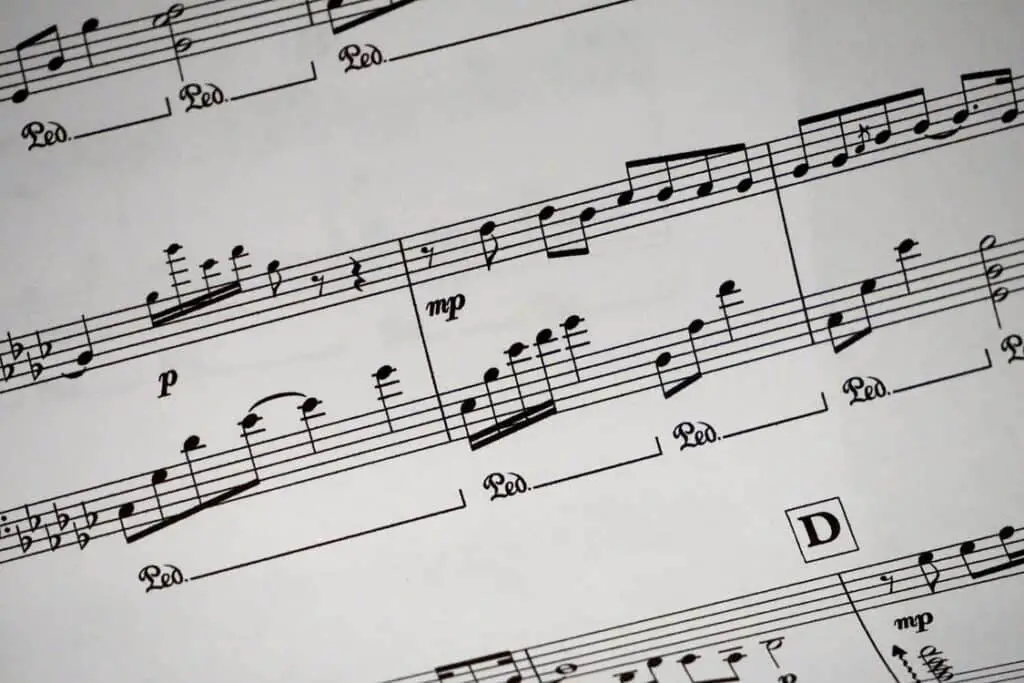
When you start learning the guitar, the first musical element you mostly encounter are chords. You simply learn these as shapes like a, c, e minor, etc. Your introduction to scales comes typically when you start to take an interest in lead guitars, especially when you try to emulate a professional lead guitarist and produce an improvised lead guitar solo.
But actual music players and theorists have constantly highlighted the profound relationship between scales and the quality of music.
As a guitarist, you want to improve, you want to grow your sound, and one of the ways to quickly do that is by learning guitar scales.
So what scales should you learn on the guitar?
The most important guitar scales to learn are:
- The major scale.
- The major pentatonic scale.
- The minor pentatonic scale.
- The natural minor scale.
- The blues scale.
It’s no secret that most guitarists do not fancy musical theory, but here, we’ll try to break scales down to the simplest of terms. We’ll also show you how to use scales when playing and the benefits of using them.
5 Most Important Guitar Scales For You To Learn

A scale is a group of notes played in order, forming a pattern. Scales are used to create melodies, bass lines, riffs, and lead guitar solos. Each scale has its pattern on the fretboard, and learning them takes practice.
Here are the major guitar scales you should try learning.
The Major Scale
Even if you have no idea about scales, there’s a great chance that you must have heard of The Major Scale. Aside from being one of the most popular scales, it’s also the easiest to learn.
They are formed by playing tones and semitones in a sequence and are made up of seven notes. Major scales are perfect for solos and are the foundations of most western music today. Some popular major scale songs are Honky Tonk Woman by the Rolling Stones and “ABC” by the Jackson 5.
In guitar music, the distance between two frets is a semitone, while a tone is the distance of two semitones.
Major Pentatonic Scale
No matter the number of guitar scales you learn, you’ll always find yourself returning to the major pentatonic scale. This is purely because of the influence it has had on guitar music in general; your favorite guitar songs are most likely products of the major pentatonic scale.
The major pentatonic scale is very similar to the major scale. The only difference between them is that while the major scale comprises seven guitar notes, the major pentatonic scale is made of five. That’s why it has the Penta prefix.
The two missing notes from the major scale that make up the major pentatonic scale are the fourth and seventh. This change allows for more freedom to use notes when soloing and improvising.
The Natural Minor Scale
After you have learned the two major scales, you can start learning some of their modes. An excellent way to begin with is the natural minor scale.
The natural minor scale is formed by simply lowering the sixth, fifth and third scale degrees by a half step.
The natural minor scale can be challenging to learn, and it’s advisable to practice it using two strings. Get acquainted with this before you combine them and play the full shape.
The Minor Pentatonic Scale
The Minor Pentatonic Scale is an offspring of the major pentatonic scale. It’s also one of the easiest scales to play on the guitar.
The scale is six strings shaped and has only two patterns, making it easier to memorize.
The Blues Scale
The blues scale’s name is a little misleading. It’s not only used in playing blues music, but you can also use it for a ton of other genres.
If you’ve fully understood the minor pentatonic scales, the blues scale will be easy. The only difference between the two is the addition of a single note, that’s two for the whole shape.
You can practice this scale by soloing popular blues songs.
How Learning the Scales Helps You Play the Guitar Better
Many guitarists learn the guitar without guitar scales, and though they might be fun, their learning process is usually stressful and long.
Learning guitar scales will help you grow in crucial areas. Here are some of the benefits of learning guitar scales.
- You’ll be able to understand and apply musical concepts
- You’ll learn how to change chords swiftly
- Control, Dexterity, finger independence, and finger strength
- When you learn scales, you’ll develop the ability to learn songs faster
- You’ll fully understand your guitar and be able to write your own songs.
The Bottom Line
Guitar scales are the founding elements of music. Understanding them will give you a broader view of the guitar and make you appreciate it more.
But there are dozens of guitar scales out there, and it might be daunting to choose the perfect one to learn. However, the major scale, the major pentatonic scale, the minor pentatonic scale, the natural minor scale, and the blues scale are the best options.
Lastly, it doesn’t matter the guitar scale you choose to learn because, without adequate practice, you’ll not make any progress. You might end up hating the concept too. Practice often, and if you have problems, you can hire a tutor.









